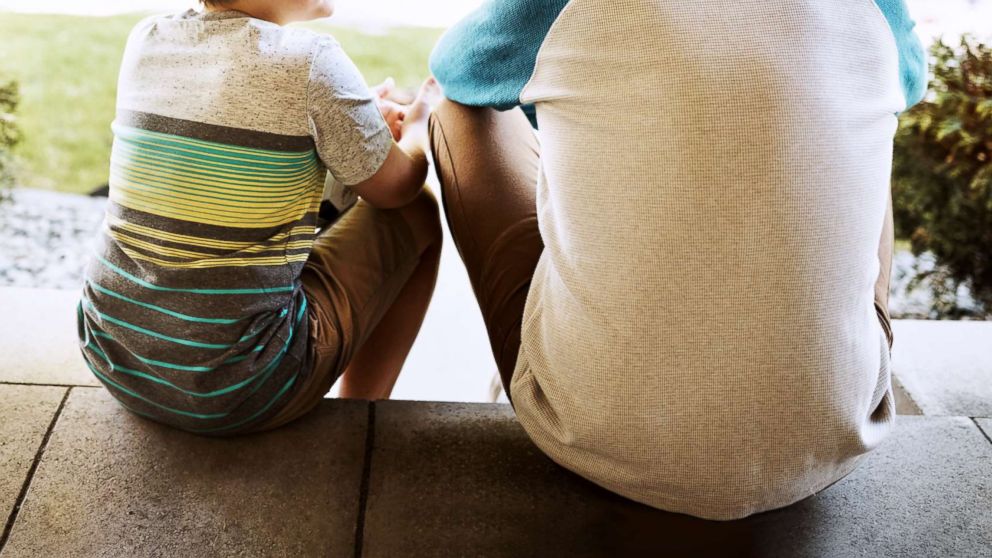How parents can protect kids from sexual abuse: COLUMN
Talk about these things early to minimize the risk of sexual abuse to your kids.

The Vatican is still reeling from a damning report released by a grand jury earlier this month in Pennsylvania that found 300 Catholic priests across the state had abused more than 1,000 children in the past 70 years, and the fallout from an explosive letter that accuses Pope Francis of covering up a sex abuse scandal in the U.S.
The news of sexual abuse and a possible cover-up in the Catholic Church has left me horrified, saddened, and deeply concerned.
As a pediatrician, caring for the well-being of children is what I am trained to do. The thought of a haven where I have found so much peace being, secretly, the place of so much suffering for children has been difficult to comprehend.
So I am doing what I know to do: helping parents keep their children safe.
Here is some of the advice I've been sharing.
First, know that sexual abuse of children is not on the rise. Context is key. According to our best estimates, sexual abuse of children is not actually more common now. The stories are horrible and every child who is abused is one child too many, but it is important to know children are not at greater risk today. That said this is still something we must take seriously, as almost 300,000 children experience sexual abuse every year, according to the latest government statistics.
Second, it is important to know we are not talking about "stranger danger." Many parents believe their kids are at greatest risk of being abused by a stranger, but 9 out of 10 times the abuser is known to the child, according to numbers from the University of New Hampshire Crimes Against Children Research Center. Read that again. These children know their abusers.
With that context, here are the things you can do at home to minimize the risk of sexual abuse to your children:
1. Teach children the appropriate name for body parts. Both the vagina and the penis are normal parts of a child’s body, and should be called by those names at home. If your family has a preferred nickname at home, that’s of course up to you, but please teach the real names too. Talking about them in this context is a great way to teach body awareness, and a way to ensure if your child ever has to run to another adult for help, that adult will understand immediately what is going on, and help your child.
2. Be explicit: private parts are private. As you are teaching body awareness, be very clear -- nobody is allowed to touch you in your private parts.
3. Have a conversation about what to do if someone makes your child uncomfortable. Talking about an uncomfortable and potentially dangerous situation ahead of time will ensure your child will know how to react. In this conversation I recommend parents tell their kids to come to them with concerns and I also recommend parents explicitly say “I will believe you, I will be on your side, I will help you, and I will love you no matter what happens or who is involved.” Abusers who are in positions of power will often tell children they won’t be believed or loved. Children are often told to be polite to adults, but let them know that if something feels wrong, you are perfectly fine with your child being "impolite."
4. Encourage healthy boundaries. Everyone loves a hug from a toddler, but I’m asking families to allow the toddlers to initiate the hugging and any other physical contact, for that matter. This sends a message to toddlers and young kids that they are in charge of their own bodies.
5. Secrets are not a good thing. I also ask parents to teach children that no other adult or child should ever ask them to keep a secret from mom or dad.
6. Be aware of circumstances. Know where your kids are, who they are with, and be careful of circumstances that could put them at risk. A large sleepover, for example, is a circumstance in which one child could be missing for a period of time without anybody noticing.
7. Trust your gut. If there is ever an adult who is making your child feel “extra special” or who just gives you the wrong vibe, trust yourself and your instincts and remove your child from the situation.
Dr. Edith Bracho-Sanchez is a pediatrician and a consultant for ABC News. Opinions expressed in this column do not necessarily reflect the views of ABC News.




